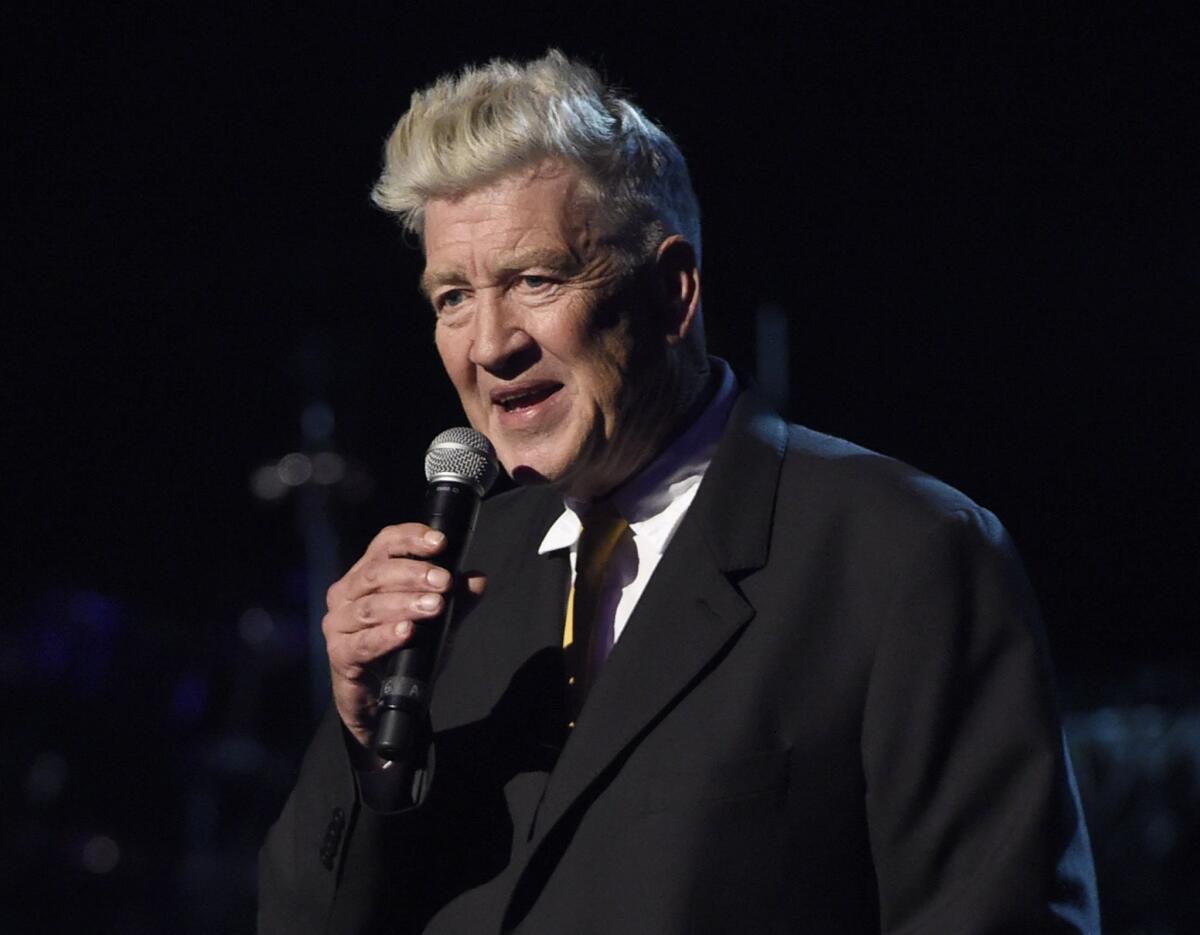‘Twin Peaks’ exit provides a last Lynchian twist

It’s David Lynch 1, TV revival 0.
When it comes to Hollywood scorecards, there are plenty of ways to measure success: box office, ratings, the number of agents that can dance on the head of a pin, or out of the CAA building.
But one of the more interesting of such grades — whether the golden age of television was so powerful it could draw a reluctant auteur back to the drawing board — was finally about to be handed out. And after Lynch said he was walking away from a “Twin Peaks” revival on Showtime (for budgetary reasons, he tweeted), the score was decidedly in David Lynch’s favor, and against the rest of us.
For a while it looked like it would go another way, of course. Last year Lynch and Showtime, along with original co-creator Mark Frost, had announced an agreement to bring back a modern-set version of the series, with Lynch directing all nine episodes. Lynch had been highly unwilling to return to the screen — the formerly prolific director had not directed anything since 2006’s “Inland Empire.”
It was the ultimate capper to what had been happening in this golden age of television. Many top-tier filmmakers — people such as Michael Mann, David Fincher, nearly Ang Lee — had gotten into the episodic game. Such trends, though, hadn’t reached the entirety of the ranks of top artists, or the finicky ones. The Steven Spielbergs of the world have producing empires, but they aren’t directing themselves. And the Lynches and Malicks weren’t doing anything on television at all.
Lynch was going to change that, and fittingly so. After all, it was Lynch himself who had brought the ethos of high-end cinematic storytelling to television in the first place with the original “Twin Peaks” 25 years before. The director returning to that franchise was a kind of closing of the circle, an acknowledgment of what he had done — and, perhaps, a way to show some of the newer types how it could be done.
For those of us who craved more doughnuts and Dale Cooper, it was great news. It was interesting news in a larger sense too. In Lynch’s return to “Twin Peaks,” you had a Lynchian, double-back-on-itself twist — the man who helped begin the golden age of television but had sat it out was now rejoining it. It would be like George Washington joining the Hillary ticket. Like Alan Turing designing the next iPhone. Like Che coming back to make a plea for universal healthcare.
But there are several ways David Lynch can be David Lynch. And perhaps nothing is more Lynchian than thwarting easy narrative expectation. So the filmmaker walked away.
Was it budget or reluctance of another kind? Lynch has said he has sat out filmmaking in recent years because he hasn’t felt inspired.
“I haven’t gotten the big idea,” he said when I interviewed him in 2012. “I’ve got some fragments that are coming, but not the big idea. If I got an idea that I fell in love with, I’d go to work tomorrow. I just haven’t.”
Lynch also has little to gain, reputationally, by returning to what he’s embraced for (though how much he actually cares about reputation is another matter).
Showtime, which appeared to be caught off-guard with Lynch’s Twitter announcement, hasn’t officially terminated the project (they’re between a rock and a hard place with Lynch’s exit) . For the larger TV renaissance, the message is, at least in this very specific case, unfortunate. Many of the best creators around are toiling in television every week. But Lynch has been confounding us viewers for years. He’s now confounded a force even more powerful.
More to Read
Only good movies
Get the Indie Focus newsletter, Mark Olsen's weekly guide to the world of cinema.
You may occasionally receive promotional content from the Los Angeles Times.







